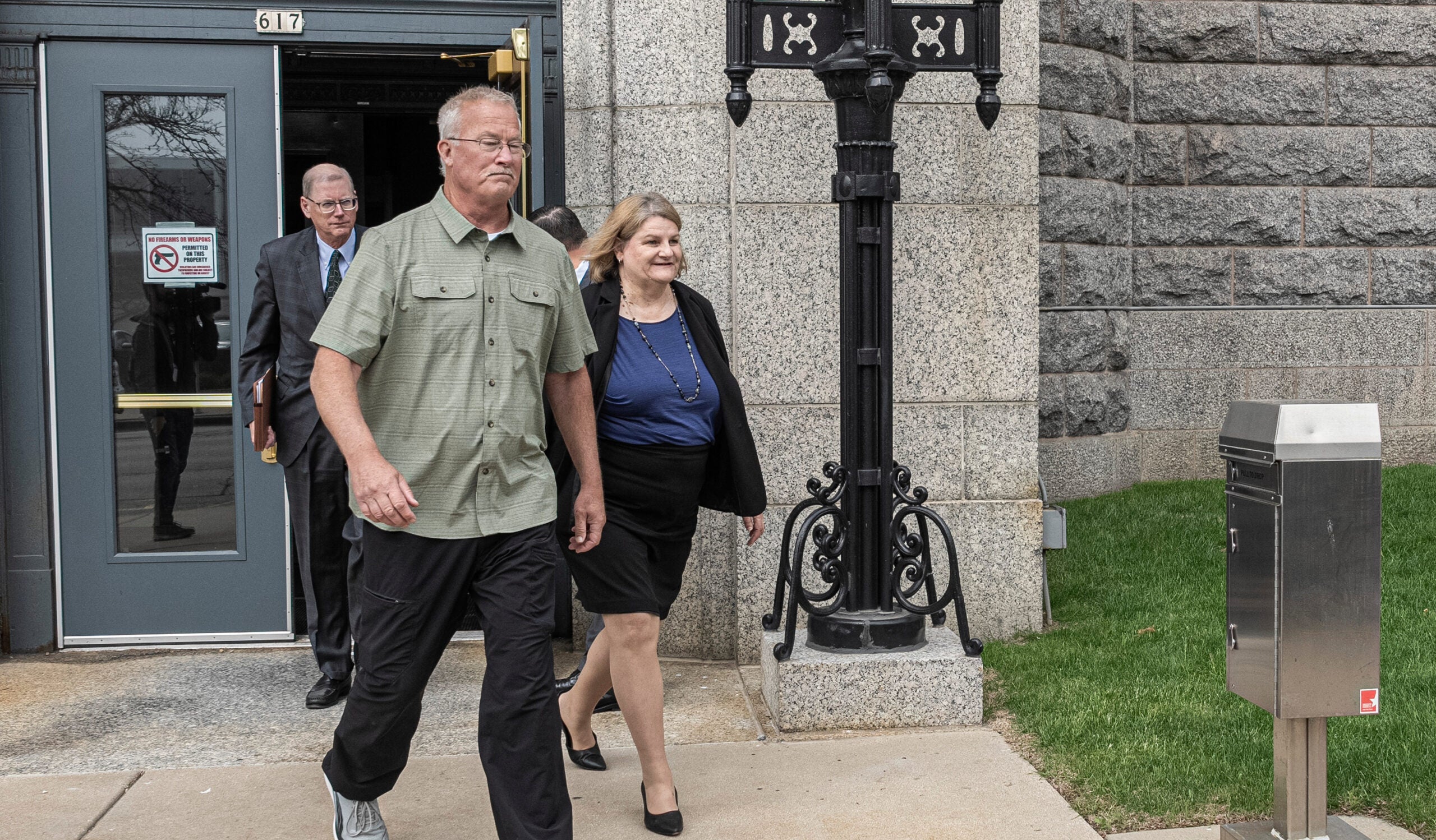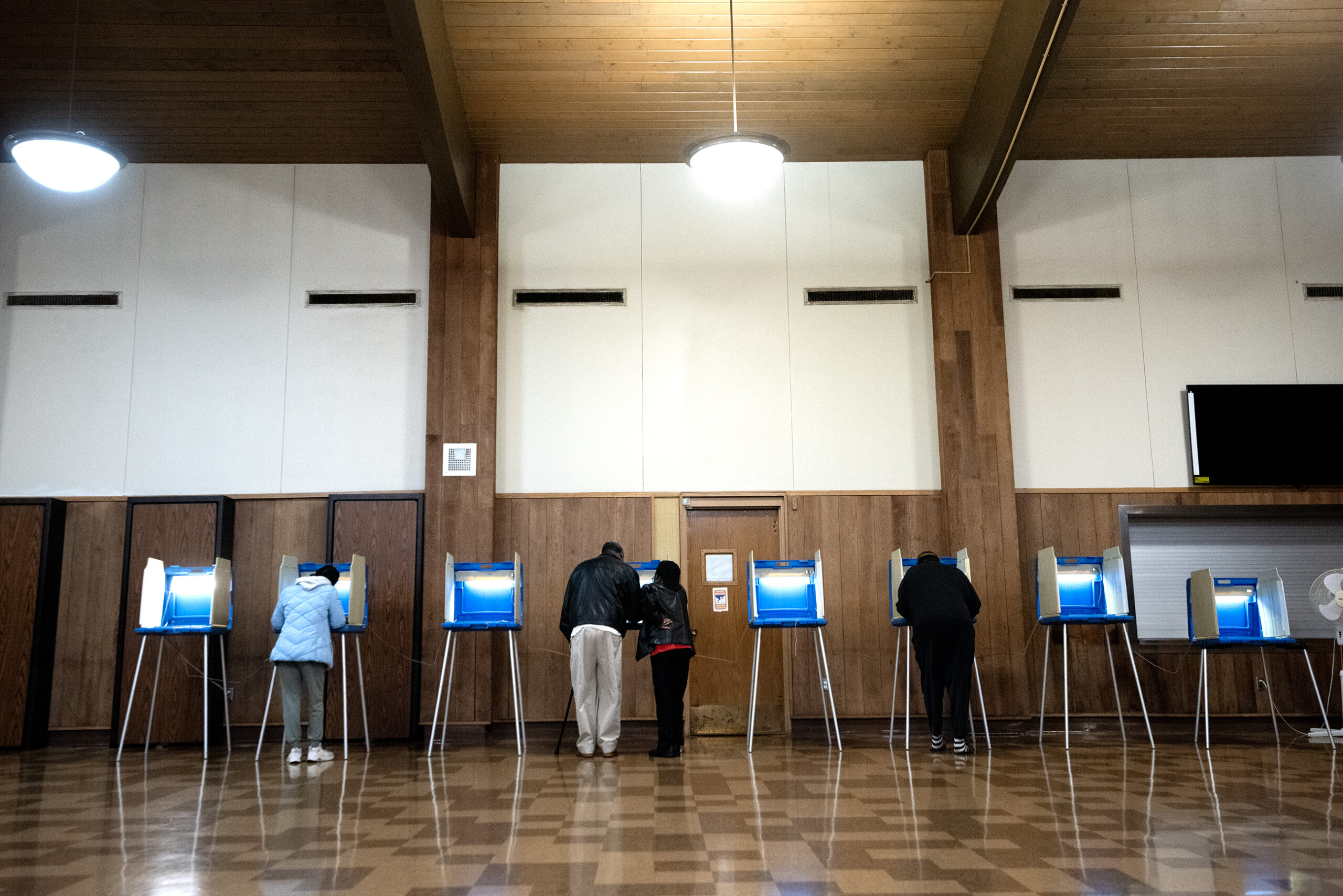State senators heard testimony this week on a bill that could result in higher bail for thousands of people who are charged with crimes in Wisconsin.
Legislation introduced this month would require a judge or court commissioner to set bail of at least $5,000 when a defendant has a past bail jumping conviction. The requirement would apply even for non-violent misdemeanor charges like disorderly conduct or retail theft.
Republican sponsors, like Sen. Julian Bradley of Franklin, say the aim is protecting public safety.
News with a little more humanity
WPR’s “Wisconsin Today” newsletter keeps you connected to the state you love without feeling overwhelmed. No paywall. No agenda. No corporate filter.
“Far too many repeat offenders and bail jumpers are being released on low or no cash bail only for them to commit another crime,” Bradley told the Senate Committee on Judiciary and Public Safety. “This is happening because soft-on-crime judges and DAs (district attorneys) aren’t prioritizing public safety.”
But Amanda Merkwae of the American Civil Liberties Union of Wisconsin says the bill would drastically increase the number of Wisconsinites held in jail before trial, while furthering economic and racial divides between those who can afford to post bail and those who can’t.
“When you think about the risk of job loss, the risk of losing housing, the impact on child custody and parental rights … for folks that are even spending a few days or weeks or months incarcerated pretrial, it’s not keeping our state our communities safer,” she said. “With overflowing jails, I don’t know how counties could absorb the costs of providing care for more folks that would be detained pretrial.”
Statewide data: Bail jumping is most commonly filed charge in Wisconsin
A 2018 study in the Wisconsin Law Review study found more than 27,000 misdemeanor and felony bail jumping charges were filed statewide in 2016, making it the most frequently-charged offense in Wisconsin.
Bail jumping charges can be filed against people who’ve failed to show up for court while out on bond, though it’s common for multiple counts of bail jumping to be filed against someone in the same case.
Prosecutors also file the charge when someone is accused of violating non-monetary conditions of bond. A judge, for instance, could allow someone to be released from jail before trial if they meet certain requirements, like not drinking alcohol or avoiding contact with certain people.
“Conduct that results in a bail jumping charge is often not a crime itself,” Merkwae said. “Someone could be charged with bail jumping for breaking a curfew, or missing an appointment, or not updating an address with the caseworker, for having a beer, missing a drug test appointment.”
Bill could require bail of at least $10K for people with past violent crime convictions
For someone accused of a violent crime, the bill would also mandate bail of at least $10,000 if that person has a past violent crime conviction. That definition of violent crime includes a list of more than 20 offenses, such as homicide, battery, sexual assault, robbery, arson, stalking and violating a domestic abuse protection order.
In written testimony submitted to the judiciary committee, the Wisconsin State Public Defender’s office argued the $10,000 requirement could be challenged on constitutional grounds as an “unreasonable” amount of bail. And, the office argued, the changes won’t improve public safety.
“Cash bail often results in poor people charged with non-violent crimes staying in custody pre-trial while people with access to resources who are charged with violent crimes are able to post cash bail and be released,” wrote Adam Plotkin, the office’s legislative liaison.
The Wisconsin Professional Police Association has registered in support of the proposal. The legislation would also require circuit courts to report data on criminal cases where people are released without bail, as well as data on cases where bail or other conditions of release are imposed. That data would be submitted to the director of state courts and then published online by Wisconsin’s Department of Justice in an annual report.
Wisconsin Public Radio, © Copyright 2025, Board of Regents of the University of Wisconsin System and Wisconsin Educational Communications Board.







